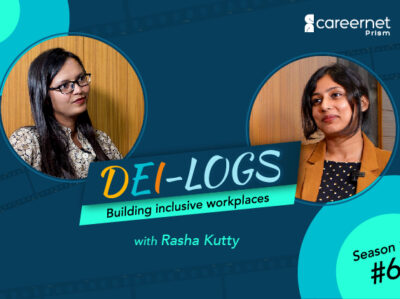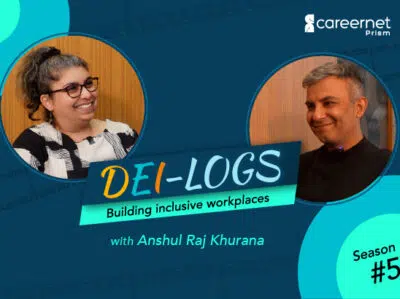Architects of Great Talent | Does Your First Job Define Your Career? | Nidhi Sharma (AQR Capital Management)

1 in 4 GCC Roles to Turn Contractual by 2026
September 30, 2025
A global leader in AI document automation sets up their world-class R&D centre in India
November 14, 2025
Your first job is unforgettable — the thrill of that first offer, the nerves, and all the “what ifs.” But does it really shape your career? Should you chase the highest pay, or focus on learning and growth?
In this gripping episode of Architects of Great Talent, Pasupathi S (Chief Operating Officer, Careernet) speaks with Nidhi Sharma (MD and India Head of HR at AQR Capital Management) to explore the decisions that can set the stage for long-term success — and why your first role does not have to define you forever.
Students and early-career professionals, you will learn how to:
- Decode your first job: what truly matters — learning, growth, or salary
- Avoid the hidden pitfalls most beginners face
- Turn internal opportunities into career-launching moments before looking elsewhere
Recruiters and HR leaders, you will discover:
- How to grow in HR without moving out of recruitment
- How first jobs build confidence, adaptability, and long-term potential
- Ways to identify hidden talent and foster meaningful career paths
From stepping into a first role to mentoring the next generation, this episode provides actionable advice, fresh perspectives, and a deeper understanding of how careers truly evolve.
🎧 Listen and Subscribe
Join us on YouTube for more conversations with leaders shaping the future of work and talent.
FAQs
1. Why does the first job matter?
It builds the foundation for confidence, adaptability, communication, and networking. Your first role teaches you how to operate in a professional environment and contributes to long-term growth.
2. Can careers pivot after the first job?
Yes. Careers rarely follow a straight line. Experiences, skills, and credibility gained in your first role can support internal moves or external shifts later.
3. How should students evaluate job offers?
Focus on three key elements: the role, the brand, and compensation. The role matters most—look for learnability, exposure, and meaningful contribution.
4. Should you prioritise internal opportunities or look outside?
Exploring roles within your organisation first can be advantageous. Credibility, familiarity with systems, and existing networks often make internal moves smoother and more rewarding.
5. What common mistakes do students make early on?
Chasing only compensation, following peer pressure, or overlooking growth opportunities within the organisation. Self-awareness and proactive learning are critical.
6. How important is networking and mentorship in early careers?
Talking to peers, seniors, and mentors helps you identify strengths, explore options, and make informed decisions. Early guidance can open doors you might not see on your own.
7. What should you do if your career feels stagnant?
Recognise it, take ownership, and seek stretch assignments, new projects, or upskilling opportunities. Avoid a victim mindset; growth requires initiative and continuous learning.
8. Is recruitment a good function to start a career in HR?
Yes. Recruitment builds a strong foundation in HR, teaching skills that influence people, culture, and organisational success. It’s quantifiable, data-driven, and always in demand.
9. Do you need to move out of recruitment to grow in HR?
Not necessarily. Career growth should align with personal interest. If you enjoy recruitment, it can be a fulfilling long-term path. Exploring other HR areas is optional, not mandatory.


